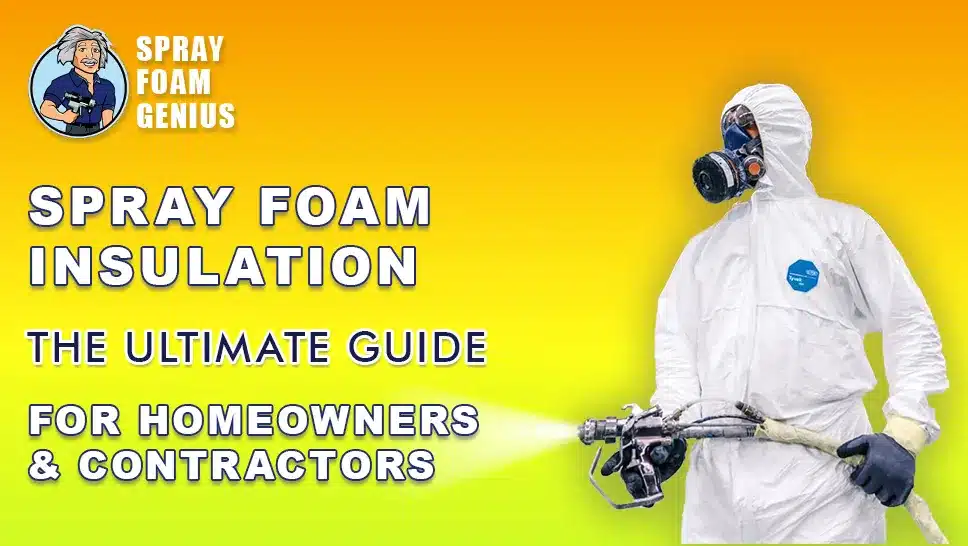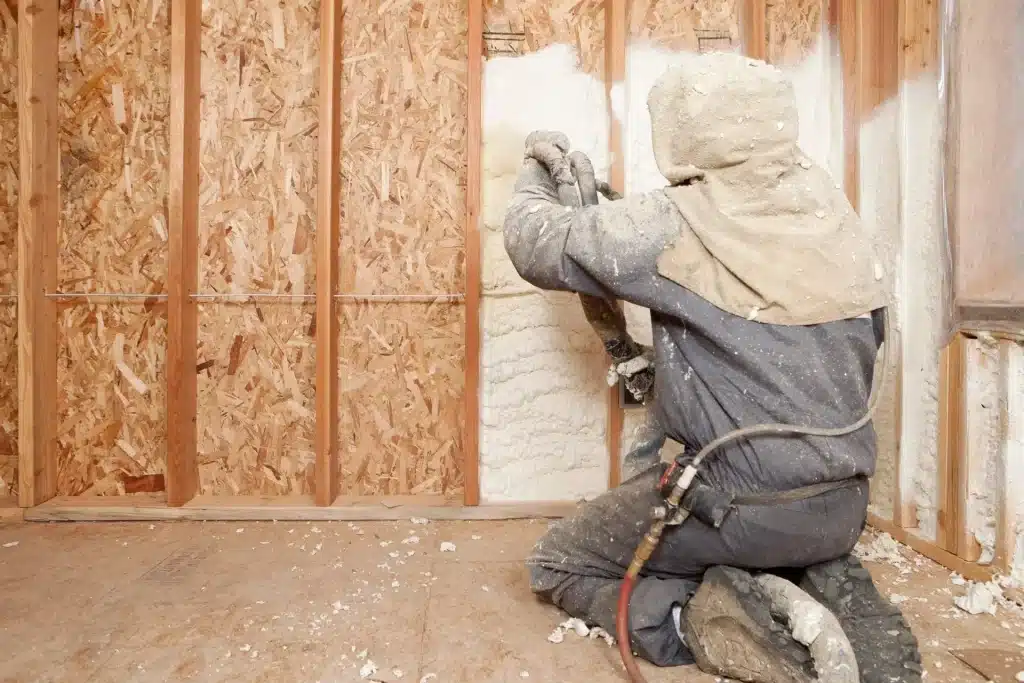
What is Spray Foam Insulation?
Spray foam insulation is a high-performance insulation material that expands upon application to seal gaps, cracks, and voids. It is widely used in residential, commercial, and industrial settings for its superior thermal performance, air sealing properties, and energy efficiency benefits. Unlike traditional insulation materials such as fiberglass and cellulose, spray foam creates an airtight barrier that prevents heat loss, moisture intrusion, and air leakage.
Types of Spray Foam Insulation
There are two main types of spray foam insulation:
- Open-Cell Spray Foam:
- Lightweight and flexible
- Lower R-value (around R-3.5 to R-4 per inch)
- Effective for soundproofing and interior wall insulation
- Allows moisture vapor to pass through
- Closed-Cell Spray Foam:
- Denser and rigid
- Higher R-value (R-6 to R-7 per inch)
- Acts as a vapor barrier, preventing moisture accumulation
- Enhances structural integrity
- Ideal for exterior walls, basements, crawl spaces, and attics
Benefits of Spray Foam Insulation
1. Energy Efficiency & Cost Savings
Spray foam insulation significantly reduces energy consumption by minimizing air leakage. Homeowners and business owners can experience up to 50% savings on energy bills, making it a cost-effective investment in the long run.
2. Air Sealing & Moisture Control
Unlike traditional insulation, spray foam creates an airtight seal that prevents drafts and moisture penetration. This reduces the risk of mold, mildew, and structural damage caused by moisture accumulation.
3. Enhanced Indoor Air Quality
By sealing off allergens, dust, and pollutants, spray foam contributes to better indoor air quality, making it an excellent choice for individuals with respiratory conditions.
4. Longevity & Durability
Spray foam insulation does not sag or deteriorate over time, ensuring consistent performance for 20+ years without the need for replacement.
5. Structural Reinforcement
Closed-cell spray foam adds strength to walls and roofs, increasing the overall durability of a building.
Spray Foam Insulation vs. Traditional Insulation
| Feature | Spray Foam | Fiberglass | Cellulose |
| R-Value per inch | R-6 to R-7 (closed-cell) | R-2.5 to R-3.7 | R-3.2 to R-3.8 |
| Air Sealing | Excellent | Poor | Moderate |
| Moisture Resistance | High | Low | Moderate |
| Longevity | 20+ years | 10-15 years | 15-20 years |
| Energy Efficiency | High | Moderate | Moderate |
Common Applications of Spray Foam Insulation

1. Attics and Roofs
Spray foam effectively insulates attics and roofs, preventing heat loss in winter and heat gain in summer.
2. Walls and Basements
Sealing walls and basements with spray foam helps prevent moisture-related issues and enhances comfort.
3. Crawl Spaces
Using closed-cell spray foam in crawl spaces prevents mold growth and improves overall energy efficiency.
4. Commercial and Industrial Buildings
Spray foam is commonly used in warehouses, manufacturing facilities, and office buildings for its insulation and structural benefits.
Spray Foam Installation Process
1. Preparation
- Assess the area for proper application
- Ensure proper ventilation
- Remove debris and existing insulation if necessary
2. Application
- Mix and spray the foam using specialized equipment
- Allow the foam to expand and cure
- Trim excess foam if needed
3. Post-Installation Inspection
- Conduct an energy efficiency test
- Ensure no gaps or missed areas
Is Spray Foam Insulation Safe?
When installed by trained professionals, spray foam insulation is safe and effective. However, proper protective gear and ventilation are crucial during application to avoid exposure to chemicals before the foam cures.
Choosing the Right Spray Foam Insulation Contractor
Finding a reliable spray foam insulation contractor is essential to ensure quality installation. Here’s what to look for:
- Licensed and Insured Professionals
- Experience with Residential and Commercial Projects
- Positive Customer Reviews & References
- Warranty on Workmanship
Cost of Spray Foam Insulation
The cost of spray foam insulation varies based on several factors:
- Type of Spray Foam (Open-Cell vs. Closed-Cell)
- Area to be Insulated (Square Footage)
- Labor Costs
- Project Complexity
On average, homeowners can expect to pay between $1.50 to $3.00 per square foot for open-cell foam and $2.50 to $5.00 per square foot for closed-cell foam. However, the long-term energy savings make it a worthwhile investment.
Get Expert Spray Foam Insulation Services Today!
At Spray Foam Genius Marketing, we connect homeowners and businesses with trusted spray foam insulation contractors across the USA and Canada. Whether you’re a homeowner looking to improve energy efficiency or a contractor seeking quality leads, we have the expertise to help.
Call now: 877-840-FOAM (USA) | 844-741-FOAM (Canada)
Visit us online: https://sprayfoamgeniusmarketing.com/
Email us: [email protected]
Let us help you find the best spray foam insulation solutions tailored to your needs!
Spencer is a Google ranking expert and SEO consultant who has helped businesses in the spray foam marketing industry achieve their online marketing goals. Spray Foam Genius Marketing has a proven track record of success, having achieved some impressive results for his clients.

